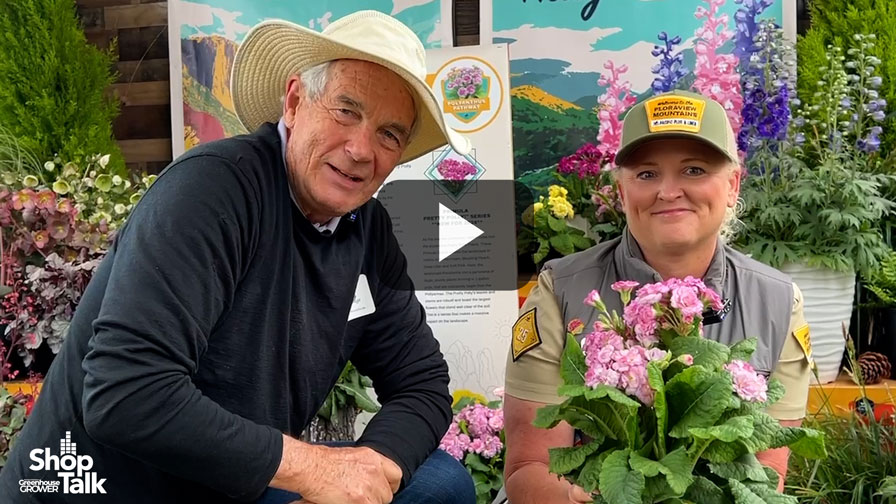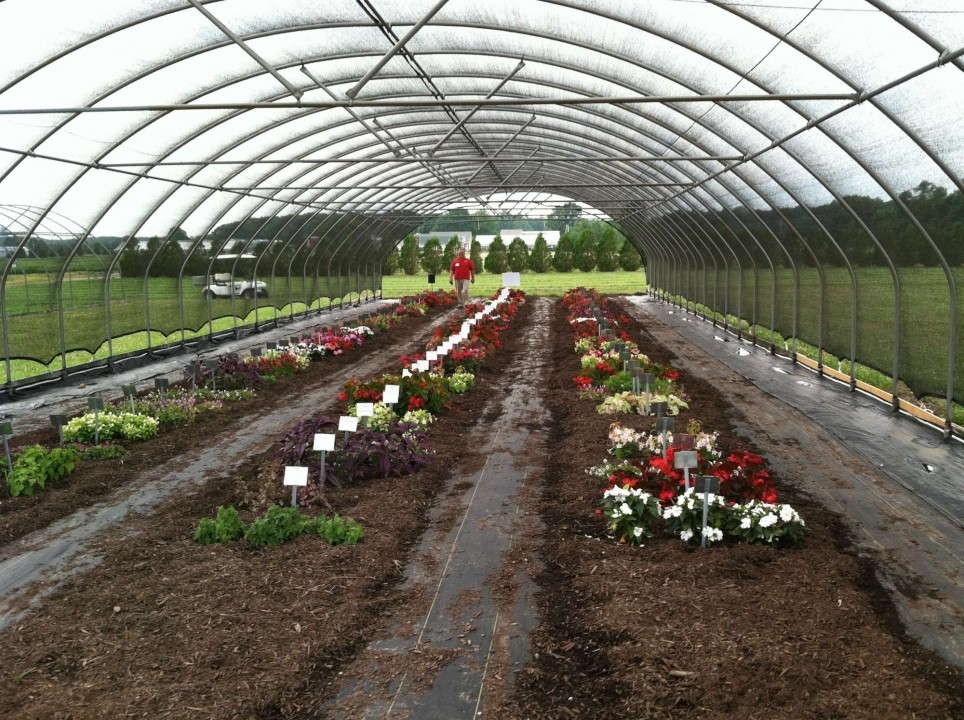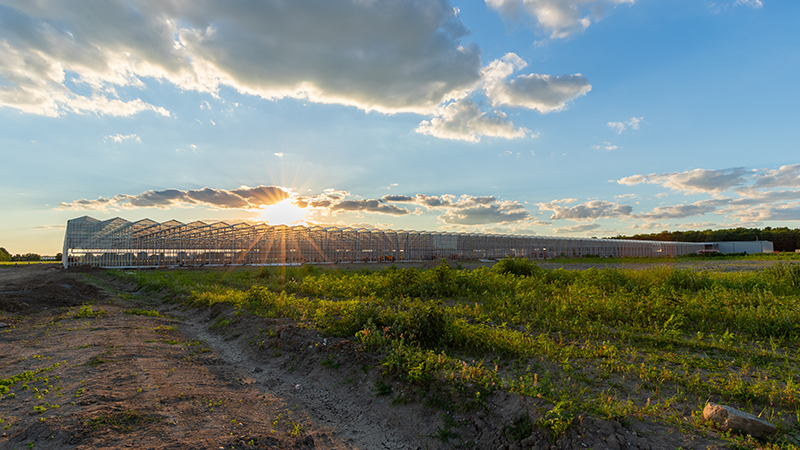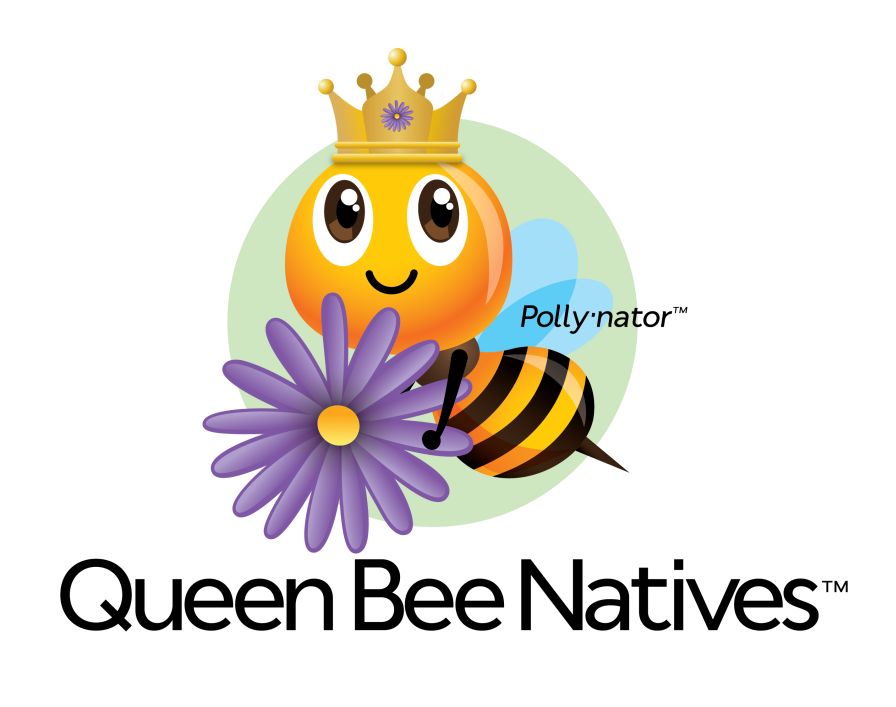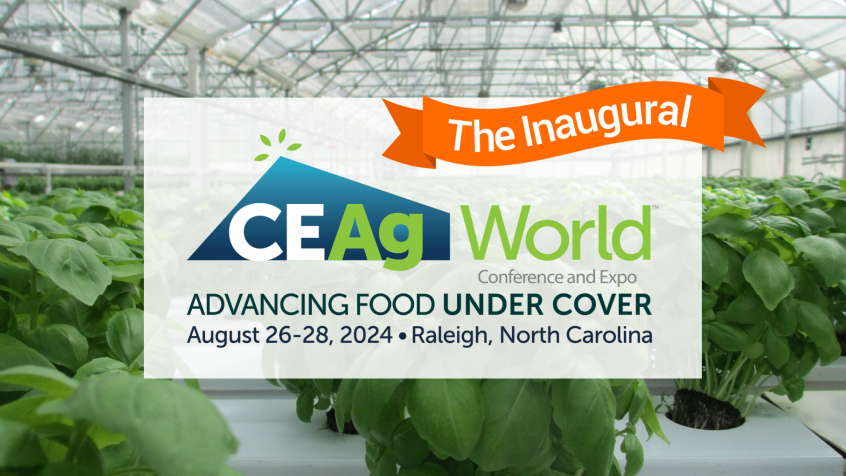Horticultural Research Institute Funding 13 Projects in 2017
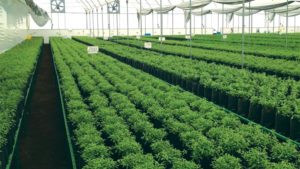 The Horticultural Research Institute (HRI), the research affiliate of AmericanHort Foundation, has announced a list of 13 projects that will receive 2017 grant funding. The projects were selected for funding based on a review system that included both industry relevance and scientific merit.
The Horticultural Research Institute (HRI), the research affiliate of AmericanHort Foundation, has announced a list of 13 projects that will receive 2017 grant funding. The projects were selected for funding based on a review system that included both industry relevance and scientific merit.
“HRI is pleased to support a number of excellent projects working to improve horticultural knowledge and practices,” says Jennifer Gray, HRI Administrator. “Supporting projects where outcomes can impact the bottom line for the industry is a top priority for our donors, our volunteer leadership, and our organization.”
“We received 53 total proposals this year that were thoughtful and representative of the entire green industry,” says Dr. Jill Calabro, Science and Research Programs Director for HRI. “The decision-making process was not easy. The projects ultimately selected address critical issues with sound science.”
HRI will provide $289,500 in 2017 to support research that benefits the green industry. The 2017 portfolio of projects are:
Improved Sanitation/Hygiene Practices in Plant Production
Objective: This project aims to address plant disease management through the use of improved sanitation and hygiene practices.
Principal Investigator: Dr. F. Baysal-Gurel, Tennessee State University
Developing a Modified Hydroponic Stock Plant System for Mini-Cuttings of Difficult-to-Root Nursery Crops
Objective: This project will compare plant vigor and root system development in the production of mini-cuttings through a modified hydroponic system with traditional cuttings, using Eastern redbud as a model system.
Principal Investigator: Dr. R. Geneve, University of Kentucky
Assessing Human Health Benefits of Gardening
Objective: This project will demonstrate quantifiable, therapeutic benefits to human health through gardening and horticulture therapy.
Principal Investigator: Dr. C. Guy, University of Florida
Development of Weed Control Strategies for Bioretention That Protect Water Quality
Objective: This project will better enable members of the green industry to manage weeds in rain gardens while still protecting water quality.
Principal Investigator: Dr. H. Kraus, North Carolina State University
Determining the Impact of Soilless Substrate Age, Composition, Fertilizer Placement, and Irrigation Regime on Weed Management in Container Plant Production
Objective: This project will provide the basis of an all-inclusive, systems-based approach to weed control in soilless substrates to help growers reduce weed control costs.
Principal Investigator: Dr. C. Marble, University of Florida
Evaluation of New Herbicides and Formulations to Develop More Effective and Economical Herbicide Rotations for Nursery Production
Objective: This project will present herbicide control information in two commonly requested formats, direct efficacy comparisons of the newest products and formulations and a rotation schedule.
Principal Investigator: Dr. C. Marble, University of Florida
Control Strategies for Nostoc, a Health and Safety Concern in Grower Operations
Objective: This project will identify treatment options for control of “the green slime” in grower operations.
Principal Investigator: Dr. J. Neal, North Carolina State University
Assessing Bee Attractiveness of Woody Landscape Plants and Mitigating Potential Bee Hazard From Neonicotinoid Insecticides
Objective: This project will continue previous research in years 2015-2016 and will expand to compare native to nonnative plants in terms of forage quality and quantity.
Principal Investigator: Dr. D. Potter, University of Kentucky
Beyond Sedum: Expanding the Plant Palette for Green Roofs
Objective: This project will identify plants (other than sedum) able to withstand harsh temperatures, drying winds, and extreme fluctuations in root-zone temperature and moisture levels for use on green roofs.
Principal Investigator: Dr. B. Rowe, Michigan State University
New Groundcover and Native Grass Species When Replacing Turfgrass
Objective: This project will evaluate 10 grass species and two ground covers as low input turf alternatives where traditional turfgrass has been removed from native areas on golf courses.
Principal Investigator: Dr. K. Umeda, University of Arizona
Development of Protocols for Micropropagation of Woody Trees Using Last-Generation Bioreactors
Objective: This project will optimize protocols for the micropropagation of woody ornamentals, such as olive trees, hybrid palms, dwarf coconut trees, and various ornamental flowering landscape trees, using bioreactor technology.
Principal Investigator: Dr. W. Vendrame, University of Florida
Do pH and Alkalinity of Irrigation Runoff Influence Floating Treatment Wetland Efficacy?
Objective: This project will characterize the capacity of aquatic plant species to effectively fix nutrients in varied pH and alkalinity levels through measurement of their growth and survival in a floating system.
Principal Investigator: Dr. S. White, Clemson University
Pairing Vegetative Buffers and Slow Sand Filtration to Remediate Diseases From Irrigation Runoff
Objective: This project will develop an effective and low-cost buffer system to remediate Phytophthora species from irrigation water using a combination of vegetative buffers and slow sand filtration.
Principal Investigator: Dr. S. White, Clemson University
HRI supports scientific research and students for the advancement of the horticultural industry and was established by industry leaders. HRI’s research and education efforts are only made possible by industry support and donors who are willing to invest and contribute.





